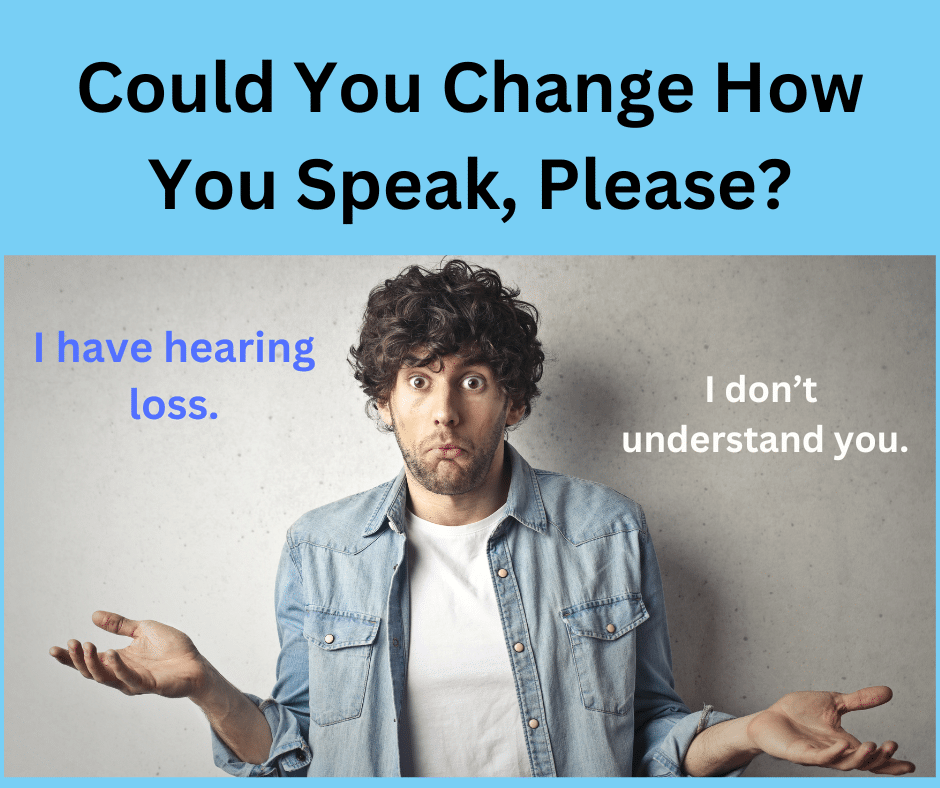Fact #1: If a conversation is to survive, both parties need to understand the other. Otherwise, it’s not a dialogue but two monologues.
Fact #2: People with hearing loss often don’t understand what the other person is saying. This is also an incomplete conversation: one monologue and one chunk of confusion.
In conversations, people with hearing loss often ask other people to do something. Speak up a bit. Slow down your racehorse pace. In group chats, we ask people to speak in turn because two voices are not better than one when they are delivered simultaneously.
Is it appropriate to ask for these accommodations? Absolutely. We need these speech modifications so we can understand our communication partners. Slightly slower or louder speech helps us to distinguish speech sounds and to speechread more effectively.
Do we always get what we ask for? Most of the time. Sometimes. Not always. And even when our friends do happily comply, they may find it difficult to sustain the changes. Louder voices drop down to their previous level, just out of our reach of hearing. The racehorse takes off again. And as for asking people to speak one at time – well, good luck with that!
This inability to sustain a change in delivery irritates us. I mean, hellooo, it’s not like we’re asking people to speak less nasally, or to lower the pitch of their squeaky voices, even though we’d love to. However, it helps to realize that how we speak is not easy to change and when we try, it’s difficult to maintain. We ask people to speak up a bit – they feel as if they’re yelling. Their voice resonates in their head. And as a fast talker, I’m seldom aware of it. I sound normal to myself, yet captioners beg me to slow down so they can keep up. I must conscientiously work at slowing my speech – and I appreciate it when someone asks me to slow down.
So, what can we do?
If our communication partner is new to our issue, we can explain our hearing loss and why we need speech modifications. We should be specific in our ask – slower, louder, face me, uncover your mouth, etc. but as and when we need the change, not all at once and in advance. We must accept that some people may need reminding, repeatedly.
They are not deliberately ignoring our needs; in the flow of conversation, it’s normal to revert to their normal communication style. We all do it and luckily, most people do a decent job of maintaining good dialogue. We can also use tech tools such as speech to text apps, or environmental modifications.
People can make permanent modifications to their speech. Strategies exist that can help lower a voice or make it more powerful. With intent and practice, we can morph from racehorse-talkers to walking pony-speakers. But our job, as people with hearing loss, is to specify our needs and learn how to have them met.
And that’s a fact!






